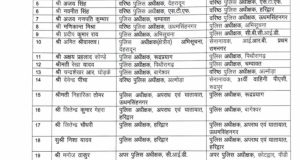DAINIK NATION BUREAU :The integration of data and artificial intelligence (AI) in the healthcare sector has the potential to drive significant economic growth in India, according to a recent report by Nasscom (National Association of Software and Service Companies). The study highlights the transformative impact of data and AI technologies on healthcare, projecting a potential addition of ₹25-30 billion to India’s GDP by 2025. This presents a compelling opportunity for India to leverage technology and innovation to improve healthcare outcomes and boost economic development.
Harnessing the Power of Data and AI in Healthcare:
The adoption of data analytics and AI in healthcare holds immense promise for improving patient care, optimizing resource allocation, and enhancing operational efficiency. These technologies can enable healthcare providers to derive valuable insights from vast amounts of patient data, leading to more accurate diagnoses, personalized treatment plans, and proactive disease management. Moreover, AI-powered solutions can streamline administrative processes, automate repetitive tasks, and reduce healthcare costs, creating a more sustainable and efficient healthcare ecosystem.
The Economic Impact: The Nasscom report underscores the significant economic impact that data and AI in healthcare can have on India’s GDP. The projected addition of ₹25-30 billion by 2025 demonstrates the potential for technology-driven advancements to drive growth, job creation, and improved productivity within the healthcare sector. Beyond the direct economic benefits, the integration of data and AI can also contribute to social welfare by improving healthcare access, quality, and affordability for millions of people across the country.
Key Factors for Success: Realizing the full potential of data and AI in healthcare requires a multi-faceted approach and collaboration between various stakeholders. The report identifies several key factors for success, including investment in digital infrastructure, fostering data interoperability, ensuring data privacy and security, promoting AI talent development, and creating supportive regulatory frameworks. It emphasizes the need for public-private partnerships, knowledge sharing, and capacity building to drive innovation and scale up technology adoption in the healthcare industry.
Challenges and the Way Forward: While the potential benefits of data and AI in healthcare are significant, there are challenges that need to be addressed. These include concerns around data privacy, ethical considerations, ensuring equitable access to technology, and bridging the digital divide. Additionally, building trust among patients, healthcare providers, and policymakers regarding the use of data and AI is crucial.
To harness the full potential of data and AI in healthcare, a collaborative effort is required involving the government, industry, academia, and healthcare professionals. Policymakers must formulate comprehensive regulations that balance innovation, privacy, and security concerns. Investment in research and development, technology infrastructure, and skill development is essential to create a robust ecosystem that supports the integration of data and AI in healthcare.
The Nasscom report highlights the transformative potential of data and AI in healthcare, projecting a substantial economic boost for India. By leveraging technology to enhance healthcare delivery, India can improve patient outcomes, optimize resource allocation, and drive economic growth. It is imperative for all stakeholders to collaborate, invest in digital infrastructure, address regulatory challenges, and prioritize talent development to unlock the full potential of data and AI in revolutionizing healthcare and accelerating India’s socio-economic progress.
 Dainik Nation News Portal
Dainik Nation News Portal




